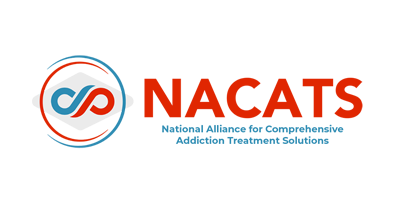
You are training the new employee at work. Your manager had nothing but good things to say about how his interview went, so you are sure it will be an easy time getting him up to speed. The first week goes smoothly, the new employee is picking up on policies and procedures quickly. But after that first week, things start to shift.
You notice the new employee zoning out and almost falling asleep standing up. When you confront him, he tells you he has not been sleeping well the past few nights and he will do better. This behavior does not seem to get any better, but actually gets much worse, to the point customers and fellow employees notice the nodding off. This can’t be explained by just lack of sleep, and soon you begin to see the signs of something much more concerning – heroin use.
In Washington County, 58 people died from a drug overdose in 2021. This is an increase from 2020 and in trend with the rising number of overdose deaths throughout the state of Tennessee. At ReVIDA® Recovery, we understand the concern of citizens in our communities and are working to provide tools and resources for addressing addiction. Today, we are discussing one of the most well-known symptoms of heroin use – the heroin nod.
Table of Contents
Why Do Heroin Users Nod Off?
There are many different signs of heroin addiction and even signs of single-use. One of the main signs is nodding off, meaning drifting in and out of consciousness. This happens because heroin slows the central nervous system, which controls breathing and heart rate. When the body feels the heart rate slow, it triggers relaxation and falling asleep. As the body begins to fall asleep, the head will “nod” forward or backward. Sometimes this movement can cause the person to wake back up while other times the person will fall asleep.
Signs and Symptoms of Heroin Overdose
When it comes to heroin use, there is always a risk of overdose. If too much heroin is taken at one time, the body and brain become overwhelmed with the substance. Breathing slows so much that it stops altogether, meaning vital organs are no longer getting life-sustaining oxygen. Common signs of heroin overdose include:
- Blue tinting on the lips and fingernails
- Gurgling noises that sound similar to choking
- Unconsciousness
- Pinpoint pupils
In the case of nodding off, sometimes consciousness is lost completely, and it is difficult or nearly impossible to wake the person. If an overdose is ever suspected, seek medical attention immediately.
The Dangers of Nodding off on Heroin
Nodding off on heroin can last a few hours, even after the initial “high” is no longer being felt. This can cause the person to use it more and more, increasing the length of time the nodding lasts.
Nodding is not a controllable response. Think back to a time when you were in a meeting or in a class that was really boring. You may have rested your head on your hand and found yourself drifting toward sleep because nothing was keeping you engaged. Even though you try to focus and stay awake, nodding still happens. The same goes for heroin users, they cannot control when or where nodding will happen, even if they want to stay awake. This can be dangerous in situations like driving or caring for children. The risk of accidents increases tremendously when the person is in the nodding stage.

The Effects of Heroin on the Brain
Heroin side effects can last days or even months with prolonged use. It works in the brain by binding to opioid receptors. These receptors control the body’s responses to pain and pleasure while also aiding in central nervous system function. The opioid receptors become desensitized over time, meaning the brain will need more heroin in order to feel the same effects. This is how heroin dependence is created.
The brain also becomes accustomed to having heroin in the system. When it is not present, heroin withdrawal symptoms begin. These symptoms are uncomfortable and are one of the main reasons people keep using heroin. While not typically life-threatening, withdrawal symptoms can increase depression and anxiety, leading to intrusive thoughts. If ever thoughts of suicide, self-harm, or harming others occur, seek medical attention.
Physical Effects of Nodding on Heroin
When in the nodding stage of heroin use, the person will feel some physical effects. Drowsiness is the main cause of nodding, as well as slowed breathing and heart rate. When breathing slows, the body is not receiving as much oxygen as it needs to keep organs functioning. The longer breathing rate slows or stops, the more likely damage is to occur to organs. Brain damage can be permanent and cause lasting problems.
Mental Health Effects of Nodding on Heroin
When in the nodding state, mental function becomes clouded. Judgment and decision-making are not in top shape, and poor choices can have dire consequences. Engaging in risky behavior such as unprotected sex or sharing needles can lead to HIV/AIDS, hepatitis, or sexually transmitted diseases. Trying to drive while nodding can cause accidents and harm to others or yourself.
These consequences can take a toll on mental health. Heroin use can increase depression, anxiety, and mood swings. Add in trying to manage an illness or side effects from nodding, these mental health effects can become unbearable. This can lead to more risky behaviors even between heroin uses as the mind is still clouded.

Getting Treatment for Heroin Use Disorder
Seeking treatment for heroin addiction does not have to be a scary or complicated process. Even if life does not feel worth it without heroin, entering a treatment program can be just as life-saving physically as well as mentally and emotionally. The goal of treatment is not to break you down or punish you for heroin use, but to lift your spirit and connect you with fellow peers who have had similar experiences. Building a support community while taking back your life is crucial for heroin use disorder recovery.
Here at ReVIDA® Recovery, we believe in treating our patients on the individual level. No two opioid use disorder stories are the same, and we pride ourselves in learning about you as a person first. We use medication-assisted treatment (MAT) because we have seen just how effective it has been in treating heroin addiction. Therapy, counseling, and outpatient services are also in our treatment program to help reclaim the lives of our patients and help them find success and lasting recovery.
If you or someone you love is managing a heroin use disorder, thinking about stopping may seem impossible. At ReVIDA® Recovery, we understand the trials and tribulations of heroin addiction, and we are here to tell you they do not have to be permanent. Call us today at 423-631-0432 to learn more about how our program has helped so many reclaim their lives from heroin.
FAQs
What is nodding on heroin?
Nodding refers to the head movement that happens when drifting in and out of consciousness.
What does nodding off or nodding out mean?
When a person nods off or out, they have essentially fallen asleep or even lost consciousness. They can be difficult or nearly impossible to wake.
What does a heroin high feel like?
A heroin high is described as a rush of euphoria and pleasure followed by hours of drowsiness and relaxation.










